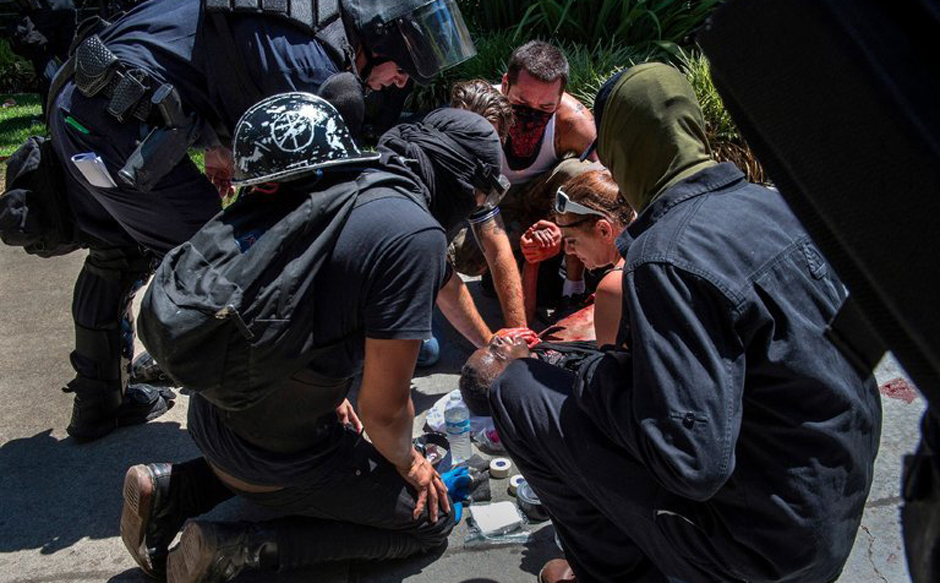
MEMPHIS -The IAM2018: Mountaintop Conference was the chance to learn about Dr. Martin Luther King Jr.’s legacy as an activist, and a man striving to affect public policy in the United States of America. The less-told history is that Dr. King advocated for radically progressive policies, policies that were aimed at bettering the lives of the poor, working people, and Black Americans.
“Crime Prevention and Criminal Justice Reform,” was one of the panels at the IAM2018 Conference with a focus on the problems of public policy, the criminal justice system, and the ways to go about change. The main message that emerged from the panel was that through concrete strategy, organizing, and actions, everyday citizens could be empowered to change the system and bring about positive reform for the marginalized and oppressed- who are often the most affected by a system embedded with racism and bias.
The panel’s speakers were Pastor Michael McBride, Attorney Brian Dunn, and youth leader Deidra Rogers. Each approached the issue of criminal justice reform in their own way. Dunn opened the panel discussion as if he were speaking to a group of friends—with a story of sorts that led to the shocking fact underlying the reasons why Black people are treated so brutally. He told everyone about how the slave master’s children were told that the enslaved did not feel pain like white people did, or suffer the same way. Dunn expressed that this sort of rhetoric allowed generation after generation of white people to brutalize Black people.
Dunn’s assertion of this subconscious bias, that Black people feel less pain and therefore suffer less, can be traced to research and studies, including a 2015 study on the distribution of opioid pain medication to children. The study followed kids who went to the ER for appendicitis, and it was found that white children received stronger medication at nearly three times the rate of Black children. A study published in 2016 found that Black boys were punished much more often than their white peers. Just last year, a study found that Black girls as young as 5 years old were viewed as less innocent than white girls.
There are many more studies that support Dunn’s point, but during the panel he sought out solutions. He told the audience that in order to change the policies informed by such oppressive and deep-seated information, we need to change the way we view humanity. Dunn explained that this had to be done before even the policies Dr. King strived so hard for could get a chance to work. “New policy is excellent, but it does no good until everyone in our country sees everyone else as a fellow human being,” he said.
Rogers, representing NextGen America and also a college senior in Florida, was a friend to the late Trayvon Martin. She explained that the image pushed by the mainstream media, and those who wanted to paint Martin as a “thug” is similar to what is done to many Black victims of police violence. Rogers explained that it was in one of her college classes on the criminal system that she began to see how this mischaracterization of Black people informs public policies.
Rogers said that there is “all this public law, policy with no apparent research. There’s nothing to say that this policy we have in place is going to improve our system, that it’s going to improve society.” Using the Florida law that she’s helping to fight against that continues the disenfranchisement of felons, Rogers explained how the policy is used to silence, disempower, and keep Black people down. Yet, Rogers proclaimed, these policies can be fought. She told the crowd that they can start a movement, and that it doesn’t have to take the death of a friend. “Attacking these policies begins with activating, speaking out and voting,” Rogers said.
Pastor Michael McBride rounded out the panel with a look at the three things Dr. King left unfinished, and the myriad of ways everyone can attack those issues in their own communities. McBride explained that materialism, militarism, and racism were the three evils that Dr. King sought to fight against. McBride explained how these three issues linked to most of all the problems that plague the Black community today. “Black people are not evil [or inherently prone to crime], they are just coping with centuries of violence, antiblackness, and poverty,” McBride asserted.
The pastor went further to say, “We have to reimagine public safety to be around a public health set of strategies that address structural and cross generational trauma in our communities.This means that we have to stop thinking of public safety as law enforcement only.We have to expand our idea of the concept [public safety] to include the basic things that people want in a community, like public job creation, housing, food, and safe spaces to play,” McBride said.
His talk ended with numerous examples of programs that are in place right now, and working to improve communities. One of those programs he mentioned was CEASE Fire and the Cure Violence Illinois to help with gun violence in Black communities. McBride, like the other panelists, also expressed the importance of voting and being active in the community as a way to “interrupt” the issues before they begin. He also talked of utilizing prevention methods before the police “swoop in for the incarceration moment.”
All three panelists singled out the need to affect policy in an effort to make long term changes in every community. They also revealed ways that each individual can begin to activate in their communities in ways that would eventually ensure that the policies change. Dunn and Pastor McBride both taught the importance of redefining key terms that have influenced those policies since slavery. Rogers rallied the people in the room to start their movements.
By the end of the panel it was understood that action could be taken beyond sitting at home or posting on Facebook and social media. There was a clear message that the problems are identified and that the community can have the power to bring about real change. The panel was not designed to dwell on problems for long, but to seek solutions. The audience received actionable tools, tips, and resources that would affect change and activate the community—which could ultimately lead to a change in bad policies, and an eroding of a troubled justice system.

MOST POPULAR TODAY


Zionist organizations leading campaign to stop ceasefire resolutions in D.C. area

Communist Karol Cariola elected president of Chile’s legislature

Afghanistan’s socialist years: The promising future killed off by U.S. imperialism

High Court essentially bans demonstrations, freedom of assembly in Deep South


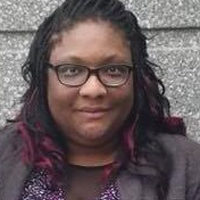
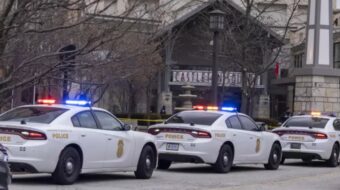
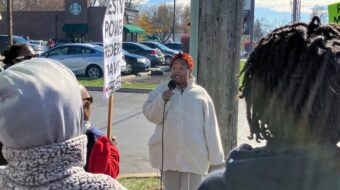
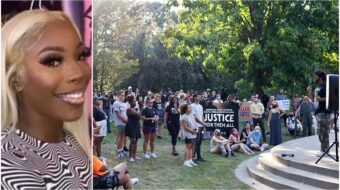
Comments